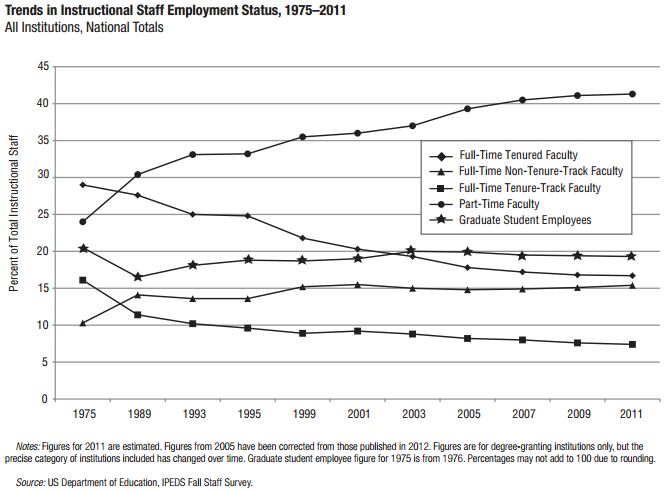Ph.D. – Is it a Useless Degree?
 Over the last few years, I have worked or spoke with numerous people who earned their Ph.D. degrees and have found themselves at a crossroads. Their degrees have proved useless in progressing their careers.
Over the last few years, I have worked or spoke with numerous people who earned their Ph.D. degrees and have found themselves at a crossroads. Their degrees have proved useless in progressing their careers.
One of my clients pointed me to the article published in the Economist –Doctoral degrees – The disposable academic.
Common Themes
There were several common themes in the stories they told me:
- Loved to learn
- Really smart
- Were not in love with the subject they studied but did not know what else they wanted to do
- Studied subjects that were not valued in the business world
- Thought they would teach as a professor at a major University
- Followed the default path and no one told them the realities
The key theme is the last one, they followed the default path. I claim this is somewhat due to the great recession. When many completed a degree, there were no jobs, so they continued to study and take more loans to delay having to get a job. That is until they finished their Ph.D. and there was either no post-doctorate work or the pay was so low that they could not live and pay their student loans.
The author of Doctoral degrees – The disposable academic wrote:
Many students say they are pursuing their subject out of love, and that education is an end in itself. Some give little thought to where the qualification might lead. In one study of British Ph.D. graduates, about a third admitted that they were doing their doctorate partly to go on being a student, or put off job hunting. Nearly half of engineering students admitted to this.
Dreams of Becoming a Professor
As they pursued their education many had dreams of becoming a professor. Major universities for years have been moving away from tenured professorships to using adjunct or part-time faculty. Plus, many of those tenured professors, who would have retired when they turned 65, are not retiring.
No one discussed with them that the chance of getting a professorship was slim to none and they never thought to ask.
This is best illustrated in the article The Ever-Shrinking Role of Tenured College Professors (in 1 Chart) from the website The Atlantic. Check out the chart below.
 The Future
The Future
Taylor Pearson, author of The End of Jobs: Money, Meaning, and Freedom Without the 9-to-5 stated in my podcast:
We’ve stopped thinking of higher education as an investment, and started thinking of it as a must-have. But, for two decades, the salary value of the degree has been going down across every industry, while the cost of it has been going up. The lines have crossed for a lot of professions, such as JDs and MBAs.
Higher education and particularly the Ph.D. degree in many disciplines are no longer economically viable. I claim that most advanced degrees are rapidly becoming dinosaurs because of the rapid change in our society and economies.
All of the people I have encountered, that inspired me to write this post, are in their mid-30s to mid-40s and are lost on what to do next.
For some of them, their education is a lost cause. They must pursue other avenues for a career. For others, it is going back to what they studied in their undergraduate studies or masters program.
Studying for the sake of studying feels good at the time but there are economic realities.
Is this you? Do you know someone like the people I described?
Marc MillerLike What Your Read? Get Career Pivot Insights
Do You Need Help With ...

Check out our Help Center where you have access to 14 different content portals.

 The Future
The Future
College and universities might be the next corporate training centers preparing current and former students for the careers of today and tomorrow. Marc hit this one out of the park! With student loan debt at a trillion dollars and shrinking salaries with the prospect of underemployment the economic value of a PhD is overrated goes back to the old saying if you are so smart then how come you are broke. The bootcamps claim to have a 90% employment placement rate classes taught by non-Phds yet know skills in demand that can land you a high paying career with benefits.
Many of us scientists did not make the PhD because we planned to pursue a career in development and industry or because we were procrastinating a job search. It was because we loved curiosity driven, explorative research: to see what no one has ever seen before, to solve what no one could ever solve before. This is why we continued to be postdoctoral researchers for years, worked until really late in the night and were happy to help in leading the research while the Lead Professor of the group taught the many-many lessons for undergrads. Even though only few can make it, we still aimed to do this all our lives – maybe it will be me who will be one of the chosen ones.
For me, this has not been the case, however. After spending 7 years as a postdoc in academia all my hope for this has gone. Then, before leaving academia, I helped my friend as much as I could: maybe he will be able to realise his dreams. Beside all these, in my late 30s I rethought my life and realised, I wanted to do something where the result in not a nice peer-reviewed article, but something having a more tangible benefit for people, like a new product.
So, the transition from academia to development and industry began. Some PhDs and postdocs do have industrial connections, they are quick in finding their new job. Some have done theoretical work, they usually end up in IT. Some – like me – have really special niche experiences, which makes it finding a fitting job real tough. You cannot get 2 years of industrial experience or hands-on experience in a well-sought-after experimental technique on-line or from a book. Employers are not looking for people who can learn new skills real fast in work even if they were proven problem solvers. The standard answer after interview is something like “The interview went very well and it was great to meet you, but we require a candidate with more specific experience.”
Eventually, after about a year even such people tend to find a new job. The important question is, how to shorten this time, how to be effective in advancing this career change.